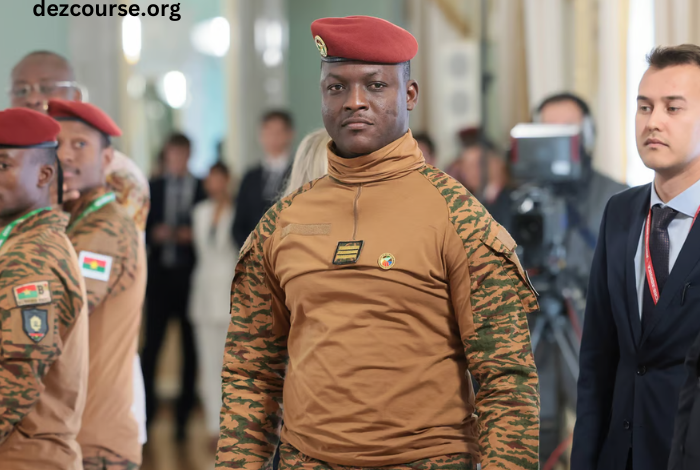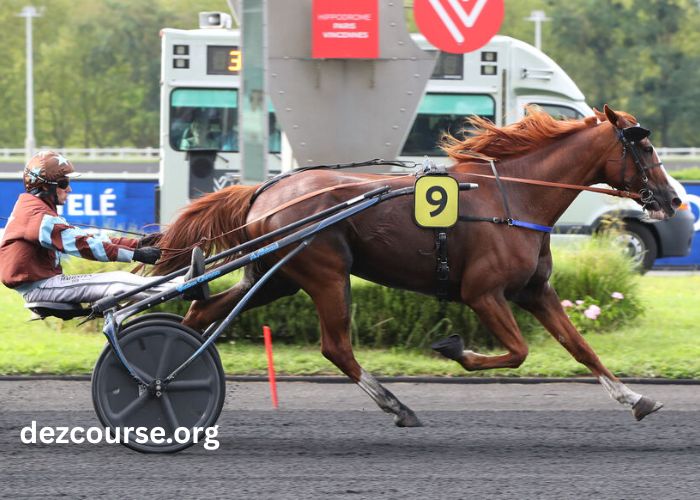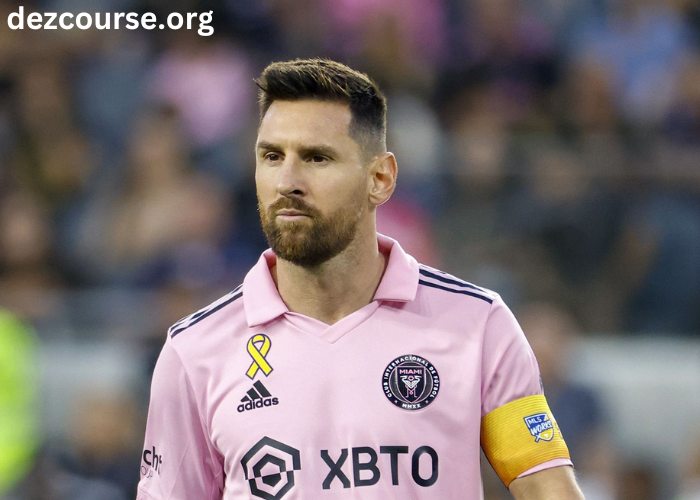The story of Capitaine Ibrahim Traoré is one of resilience and determination, as he navigates through a turbulent political climate. As a leader in Burkina Faso, his role has grown in significance, especially following his involvement in the 2022 military coup. His leadership qualities and actions have brought him to the forefront of international discussions regarding the future of the country. With his military background, Capitaine Ibrahim Traoré has become a symbol of change for many citizens who seek stability and progress amidst the nation’s challenges.
Burkina Faso has seen considerable political unrest, but Capitaine Ibrahim Traoré stands out as a figure who aims to provide direction during a time of uncertainty. His actions and decisions will play a crucial role in shaping the nation’s future. This article will delve into who Capitaine Ibrahim Traoré is, his rise to prominence, and the impact of his leadership on both Burkina Faso and the international community.
Who is Capitaine Ibrahim Traoré?
Capitaine Ibrahim Traoré is a military officer who rose to prominence in Burkina Faso, particularly after his involvement in the military coup of September 2022. At the time of the coup, he led a group of officers who ousted the then-president, Lieutenant Colonel Paul-Henri Sandaogo Damiba. Since then, Capitaine Ibrahim Traoré has taken on a significant leadership role, guiding the country through a period of political and social upheaval. His actions were largely motivated by a desire to restore order and address the growing security concerns within the country.
The military background of Capitaine Ibrahim Traoré has been key to his rise in power, with his strategic decisions helping him maintain influence and control over key military and political factions. As a leader, he is often seen as someone who brings a sense of direction in a time of instability, particularly with the ongoing threat of terrorism and extremist violence affecting the region. Capitaine Ibrahim Traoré has emphasized the need for national unity and the importance of tackling these security issues head-on.
Despite his relatively young age, Capitaine Ibrahim Traoré has proven himself capable of leading the nation through challenging times. His background in the military, combined with his ability to navigate the political landscape, has earned him both supporters and critics, each with differing views on his governance style and approach to the country’s issues.
What Led to the Rise of Capitaine Ibrahim Traoré?
The rise of Capitaine Ibrahim Traoré can be traced back to the political and security instability that has plagued Burkina Faso for several years. Prior to his involvement in the coup, the country was experiencing mounting unrest due to an increasing number of terrorist attacks, many of which were linked to groups affiliated with al-Qaeda and ISIS. The failure of the previous government, under President Damiba, to effectively deal with these security threats led to a loss of public support.
Seeing an opportunity for change, Capitaine Ibrahim Traoré and his fellow military officers took matters into their own hands in September 2022. The coup was a direct response to the government’s inability to protect its citizens and address the mounting security concerns. In this context, Capitaine Ibrahim Traoré quickly positioned himself as a leader capable of restoring order and fighting back against the terrorist insurgents that were destabilizing the country.
Following the coup, Capitaine Ibrahim Traoré took steps to solidify his authority. He formed alliances with key political and military figures, making it clear that he was committed to protecting the nation’s sovereignty and ensuring the safety of its people. This was an essential part of his rise to power, as it demonstrated his ability to garner support from different factions within Burkina Faso’s military and political spheres.
What Challenges Has Capitaine Ibrahim Traoré Faced as a Leader?
Since taking power, Capitaine Ibrahim Traoré has faced numerous challenges that test both his leadership and his commitment to reforming Burkina Faso. One of the biggest challenges has been the continued threat of terrorism. Despite the efforts of the military, extremist groups have continued to carry out attacks, and Capitaine Ibrahim Traoré has struggled to restore peace in many parts of the country. The challenge of securing Burkina Faso’s borders and territories has put immense pressure on his administration.
Additionally, Capitaine Ibrahim Traoré has faced international scrutiny. The coup in 2022 has led to sanctions and diplomatic isolation, particularly from Western countries and regional organizations such as the Economic Community of West African States (ECOWAS). These sanctions have hindered Burkina Faso’s access to crucial financial aid and foreign support, which has, in turn, made it harder for the government to address the country’s economic challenges. Capitaine Ibrahim Traoré has had to navigate this difficult diplomatic terrain while seeking alternative alliances with countries like Russia and other non-Western powers.
On the domestic front, Capitaine Ibrahim Traoré has also had to contend with political opposition and public dissatisfaction. While many in Burkina Faso see him as a symbol of change, others criticize his government’s failure to deliver immediate results in terms of security and economic recovery. These challenges have forced Capitaine Ibrahim Traoré to constantly adapt his approach and look for new solutions to the complex problems facing the country.
How Has Capitaine Ibrahim Traoré Impacted Burkina Faso’s Security?
Capitaine Ibrahim Traoré’s leadership has been pivotal in shaping the security strategy of Burkina Faso. Since taking power, he has prioritized counterterrorism efforts and sought to address the growing security threats posed by armed insurgents. His military experience has informed his strategy, which includes increasing troop deployments and forging new alliances with neighboring countries to better combat extremist groups.
Under Capitaine Ibrahim Traoré’s leadership, there have been efforts to restructure the country’s security forces, ensuring they are more effective in the fight against terrorism. However, the situation remains complex, as extremist groups continue to target civilian populations, particularly in the northern and eastern regions of the country. Despite these ongoing challenges, Capitaine Ibrahim Traoré has shown a commitment to improving the military’s operational capacity and securing key territories.
While the results of these efforts have not been immediate, Capitaine Ibrahim Traoré has gained a reputation as a determined leader focused on restoring stability to Burkina Faso. His leadership style has emphasized the importance of national unity and self-reliance, encouraging citizens and soldiers alike to rally behind the military in the fight against terrorism.
What Are the Political Implications of Capitaine Ibrahim Traoré’s Rule?
The political implications of Capitaine Ibrahim Traoré’s rule extend beyond Burkina Faso’s borders. His coup has sparked discussions about military governance in West Africa, a region that has seen an increasing number of military takeovers in recent years. As one of the newest military leaders in the region, Capitaine Ibrahim Traoré’s actions will undoubtedly shape the future of governance and democratic processes in Burkina Faso and its neighbors.
Domestically, Capitaine Ibrahim Traoré has indicated a desire for political reforms, though these have been slow to materialize. His government has promised to restore civilian rule eventually, but many question the timeline and the actual intentions behind these promises. While some view his leadership as a necessary step toward stabilizing Burkina Faso, others fear that prolonged military rule could undermine the country’s democratic institutions. The path forward for Capitaine Ibrahim Traoré will depend on how he balances the demands of security, politics, and governance.
Internationally, Capitaine Ibrahim Traoré’s rule has created a more complex geopolitical landscape. Burkina Faso’s pivot away from Western alliances has raised concerns about its future relations with international organizations. The country’s shift toward stronger ties with Russia, for instance, reflects a broader trend in the region where nations are seeking alternative partners amid perceived disenchantment with traditional Western allies.
Conclusion
Capitaine Ibrahim Traoré has emerged as one of the most influential leaders in Burkina Faso’s recent history. His rise to power, driven by a desire to address the country’s security crisis, has made him a central figure in the fight against terrorism.
As he navigates the challenges of governance, Capitaine Ibrahim Traoré continues to shape the future of Burkina Faso through his military-led approach to both security and political reform. His leadership will be tested in the years to come, but for now, he remains a symbol of change in a country seeking stability.








